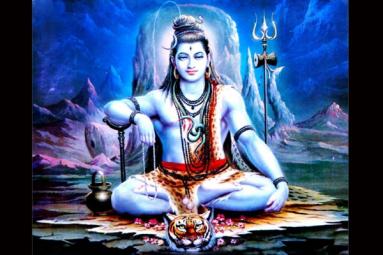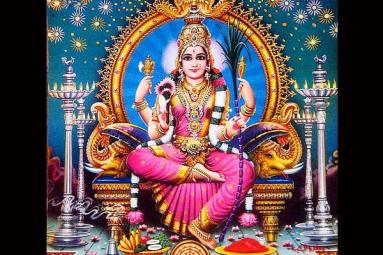
The Vishnusahasranama (Sanskrit Vishnusahasranama, a tatpurusha compound translating literally to "the thousand names of Vishnu") is a list of 1,000 names (sahasranama) of Vishnu, one of the main forms of God in Hinduism and the personal supreme God for Vaishnavas (followers of Vishnu). It is also one of the most sacred and commonly chanted stotras in Hinduism. The Vishnusahasranama as found in the Shanti Parva of the Mahabharata is the most popular version of the 1,000 names of Vishnu. Another version exists in the Padma Purana and Matsya Purana. Each name eulogizes one of His countless great attributes.
The VishnuSahasranama has been the subject of numerous commentaries. Adi Shankaracharya wrote a definitive commentary on the sahasranama in the 8th century which has been particularly influential for many schools of Hinduism even today. Parasara Bhattar, a follower of Ramanujacharya wrote a commentary in the 12th century, detailing the names of Vishnu from a Vishishtadvaita perspective. Madhvacharya asserted that each name in the sahasranama has a minimum of 100 meanings.
According to the 149th chapter of Anushasanaparva (verses 14 to 120) in the epic Mahabharata, the names were handed down to Yudhisthira by the famous warrior Bhishma who was on his death bed (of arrows) in the battlefield of Kurukshetra. Yudhisthira asks Bhishma the following questions:
"kimekam daivatam loke kim vapyekam parayanam
stuvantah kam kamarcantah prapnuyurmānavah subham
ko dharmah sarva dharmanam bhavatah paramo matah
kim japan mucyate jantuh janmasamsarabandhanat"
In this universe Who is the one (ekam) refuge (parayanam) for all? Who (kim) is the greatest (ekam) Lord (daivatam) in the world (loke)? By eulogising (sthuvantah) whom (kam) can a person (manava) reach auspiciousness (śubham) (peace and prosperity)? By worshipping (archantaḥ) whom can a person reach auspiciousness (peace and prosperity)? What (kah) is, in thy opinion, the Greatest Dharma of all Dharmas? By (kim) chanting whose name, can a "creature" (jantuh) proceed beyond (muchyate) the bonds (bandhanat) of samsara?
Bhisma answers by stating that mankind will be free from all sorrows by chanting the "Vishnusahasranama", which are the thousand names of the all-pervading Supreme Being Vishnu, who is the master of all the worlds, the supreme light, the essence of the universe and who is Brahman. All matter animate and inanimate reside in him, and he in turn resides within all matter.









